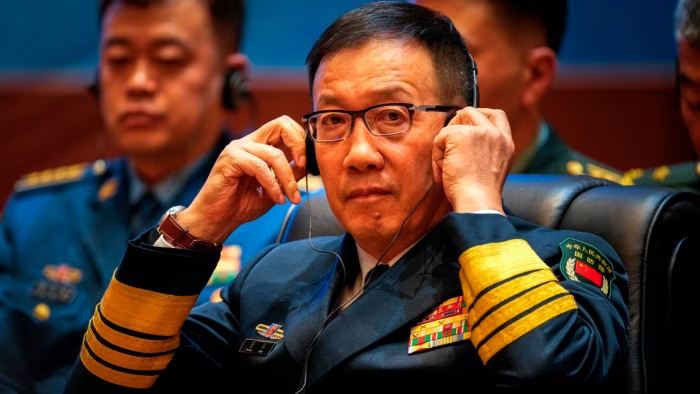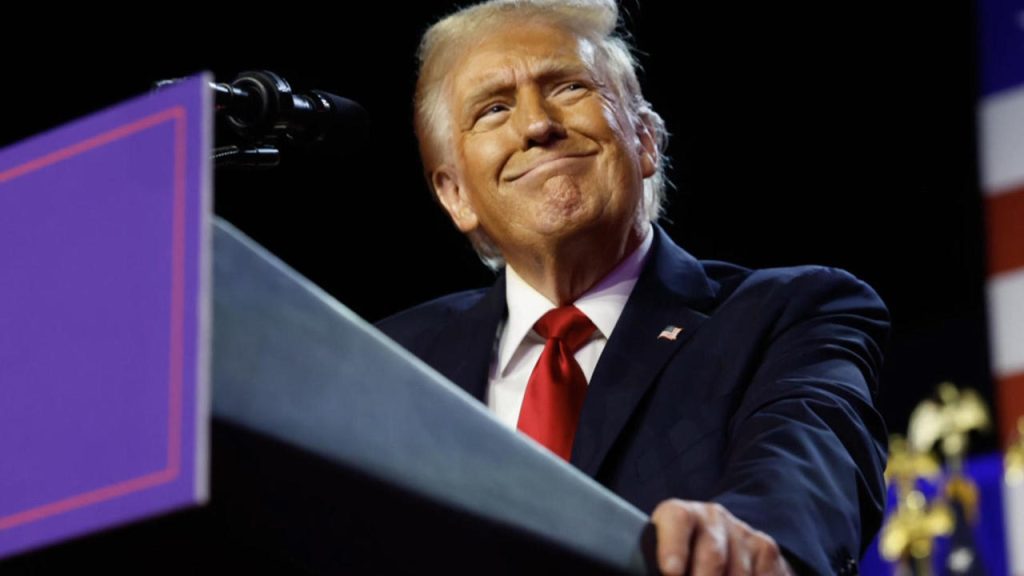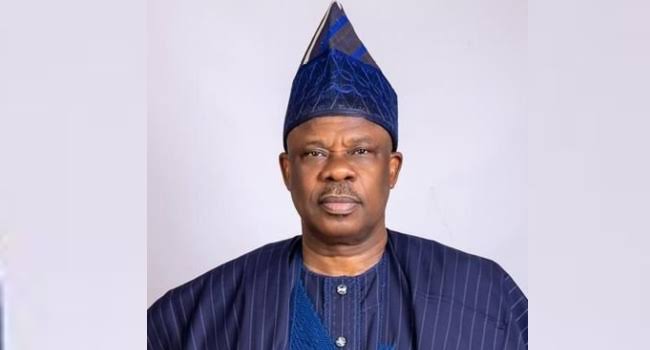China’s Defence Minister Placed Under Investigation for Corruption

In a stunning development within China’s political and military spheres, the country’s Defence Minister, General Li Shangfu, has been placed under investigation for corruption.
This marks a significant escalation in China’s ongoing anti-corruption campaign, which has ensnared numerous high-ranking officials across various sectors.
The investigation into Li, a key figure in China’s military leadership, has sent shockwaves through the political establishment and raised questions about the stability of the country’s leadership as the Communist Party seeks to consolidate power.
The Investigation and Its Implications
Li Shangfu, who was appointed as China’s Defence Minister in 2023, has had a long career in the Chinese military, notably in roles related to the procurement of weapons and military technology.
His appointment to the position of Defence Minister was seen as a move to strengthen China’s military capabilities as the country faces growing geopolitical tensions, particularly with the United States and its allies in the Indo-Pacific region.
The investigation into Li was announced by China’s top anti-corruption body, the Central Commission for Discipline Inspection (CCDI), which operates under the direct control of the Communist Party.
While the specifics of the investigation have not been made public, reports suggest that it stems from allegations related to the illegal accumulation of wealth and misconduct related to the military’s procurement processes.
These allegations are serious given Li’s role overseeing defense strategy and weapons acquisition for the country’s rapidly growing military.
This probe adds to a long list of investigations against senior officials under President Xi Jinping’s administration, which has made tackling corruption a cornerstone of its policies.
Since coming to power, Xi has launched an aggressive campaign to root out corruption within the party, targeting both high-ranking officials (often referred to as “tigers”) and low-ranking operatives (“flies”).
The investigation of Li Shangfu, one of the highest-ranking military officials in China, marks one of the most significant moves in this campaign, as it highlights that even those in the upper echelons of the military are not exempt from scrutiny.
The Role of Corruption in the Chinese Military
China’s military, officially known as the People’s Liberation Army (PLA), is a massive institution with sprawling influence, both domestically and internationally.
With military spending at record levels and a growing focus on modernizing its armed forces, the PLA is central to China’s ambitions on the world stage.
The question of corruption within the military is particularly sensitive, as it can undermine the effectiveness of China’s defense strategy and erode trust in its leadership.
The PLA has long been plagued by corruption, with high-ranking officials involved in illicit deals, embezzlement, and kickbacks related to military contracts and defense procurement.
This culture of corruption within the military sector is believed to have hindered China’s efforts to modernize its armed forces and has sometimes led to subpar military equipment being deployed due to the influence of corrupt officials.
Li Shangfu’s position as head of the Ministry of National Defense and his prior role overseeing weapons procurement for the PLA make him a key figure in these allegations.
His work in the acquisition of military technology has placed him at the heart of one of the most financially lucrative sectors within the Chinese military, where large sums of money are allocated for contracts involving weapons, equipment, and technology.
The fact that he is now under investigation suggests that corruption within the military continues to be a major concern despite efforts to curb it.
Xi Jinping’s Anti-Corruption Campaign
Under President Xi Jinping’s leadership, the Chinese Communist Party (CCP) has adopted a zero-tolerance policy towards corruption, emphasizing that it is one of the greatest threats to the party’s survival.
Xi has made anti-corruption a centerpiece of his political agenda, presenting himself as a leader who is willing to take down both “tigers” and “flies” in order to strengthen the Party and ensure its continued dominance.
This campaign has resulted in the dismissal and punishment of thousands of officials, some of whom were once considered to be close allies of Xi.
The investigation of Li Shangfu can be seen as part of this broader strategy, with the president positioning himself as a champion of integrity within the Communist Party.
However, critics argue that the campaign is also a tool for Xi to consolidate power by eliminating rivals and asserting his control over the military and other influential sectors.
The anti-corruption drive has undoubtedly been successful in removing many high-profile individuals from positions of power, but it has also led to questions about the transparency and fairness of the investigations.
The Chinese government has been accused of using corruption charges as a political tool to target those who are seen as threats to Xi’s authority.
While there is no clear evidence to suggest that Li’s investigation is politically motivated, the timing of the probe—amid growing tensions in China’s geopolitical landscape—has raised eyebrows.
Geopolitical Consequences of the Investigation
The investigation into Li Shangfu comes at a time of heightened military tensions between China and other world powers.
As the Defence Minister, Li was a key figure in shaping China’s military strategy, particularly with the country’s ongoing standoff with the United States over issues like trade, territorial disputes in the South China Sea, and Taiwan.
Li was known for his staunch advocacy for the modernization of China’s military and its technological capabilities, particularly in areas like artificial intelligence, cybersecurity, and advanced weapons systems.
Li’s abrupt removal from his position could have significant implications for China’s defense policy. While the investigation itself has not yet led to any changes in the leadership of the Ministry of Defence, the uncertainty surrounding his role could complicate China’s military decision-making processes.
With tensions in the Indo-Pacific region escalating, especially concerning Taiwan and the South China Sea, having a stable and capable leadership in the Ministry of Defence is crucial for the country’s ability to respond to geopolitical threats.
Moreover, the investigation has the potential to affect China’s international relations. As a senior official who represented China’s military interests on the global stage, Li’s downfall may signal instability within the country’s defense establishment.
This could be interpreted by foreign governments as a sign of weakness or internal disarray, potentially influencing diplomatic negotiations or military posturing in regions where China has significant strategic interests.
The Future of China’s Military Leadership
Li Shangfu’s investigation has left many wondering about the future of China’s military leadership. With Xi Jinping’s administration placing such a strong emphasis on centralizing power, the removal of one of the country’s top military figures could be seen as part of a larger effort to further consolidate Xi’s control over the military.
There is speculation that Xi could appoint a more loyalist figure to replace Li, someone whose allegiance to the president is unwavering, thus ensuring that the military remains aligned with Xi’s policies and ambitions.
In the wake of the investigation, the Chinese Communist Party will likely continue to make moves to demonstrate its commitment to tackling corruption, even if these actions also serve to strengthen Xi’s grip on power.
How the party handles the fallout from Li’s investigation will be closely watched, as it could set the tone for future efforts to maintain internal discipline and stability within China’s political and military structures.
The investigation of China’s Defence Minister, Li Shangfu, for corruption, is a dramatic development in the country’s ongoing anti-corruption campaign.
It highlights the continuing challenges China faces in tackling corruption at the highest levels of government and the military. As the investigation unfolds, its impact on both domestic politics and international relations will be significant.
For now, all eyes are on how the Chinese leadership handles this crisis, with many wondering whether it will lead to greater stability or increased political instability. The outcome will shape China’s future trajectory, especially in terms of its military power and geopolitical ambitions.






